In this article:
The gallbladder is a very small pear-shaped found under the liver and is responsible for the storage of bile juice. It is important because it is irresponsible for the release of bile, which is required for digesting fat ingested by you.
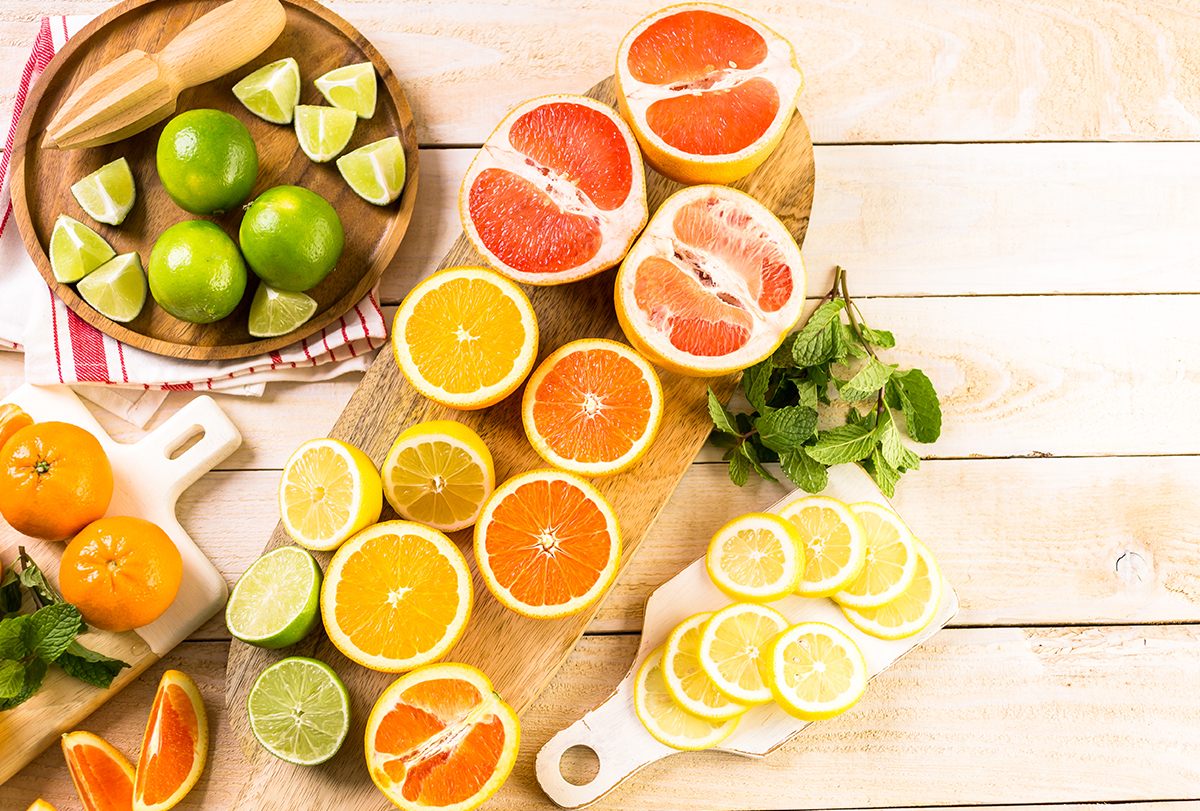
Bile is produced by the liver but stored in the gallbladder until needed. The gallbladder is connected to your digestive system via ducts that carry the bile juice to the small intestine at the time of digestion. (1)
When you eat, the gallbladder releases the stored bile, which is passed on to the small intestine where it is mixed with the food for its complete digestion.
Sadly, gallbladder problems are becoming very common. They are usually not serious if treated on time but can lead to serious issues if ignored.
Take look at some gallbladder issues and how to prevent them.
Major Gallbladder Problems
A number of problems can affect the gallbladder, some of which are:
1. Gallstones
As the name suggests, gallstones are stone-like substances made up of bile components that are stuck in the gallbladder or its ducts.
The size of gallstones can vary from person to person. They can cause a lot of pain and inflammation and hence require treatment for a better and improved quality of life. If left untreated, they can be fatal. (2)
2. Cholecystitis
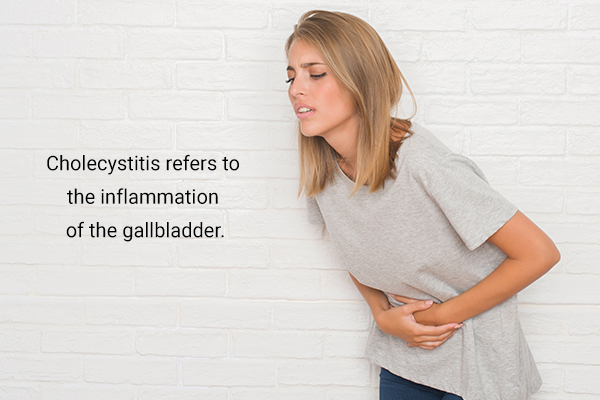
Cholecystitis refers to the inflammation of the gallbladder. This issue can be due to gallstones because they block the exit of bile juice from the gallbladder. This condition is usually associated with fever and pain and should be treated on time to avoid deadly escalations. (3)
3. Gallbladder cancer
A very rare condition, gallbladder cancer can cause a lot of pain in the abdominal area and lead to various fatal complications. Any sign relating to the same shouldn’t be ignored and requires immediate medical attention. (4)
Prevention of Gallbladder Problems
Here are some measures you can abide by to prevent gallbladder problems in the future.
1. Consume small meals
It is very important not to skip your meals and to follow a proper schedule for all your meals. This means you should try to eat at the same time every day without missing any meal. This is the best tip and also the easiest one to lead.
A healthy eating pattern and life can reduce your risk of gallbladder problems. (5)
2. Maintain a healthy weight
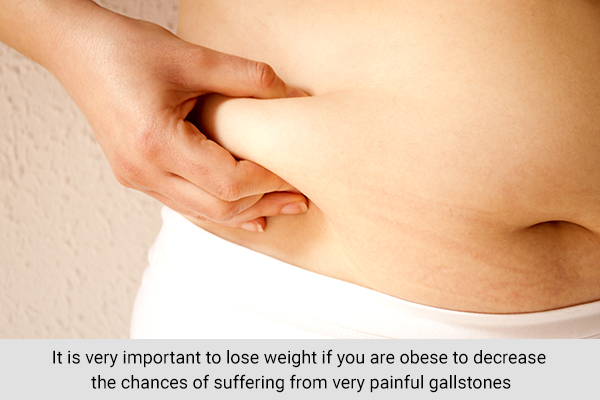
Obesity is one of the biggest contributing factors to gallstones. So, it is very important to lose weight if you are obese to decrease the chances of suffering from very painful gallstones. You can do so by following a routine that keeps you physically active.
Try to exercise for at least 15 minutes every day. The simplest ways are going for a walk, jogging, and joining aerobic exercise classes. (6)
3. Eat fiber-rich foods
Your diet is very crucial in the prevention of gallbladder problems. It is important to include foods rich in fiber in your diet to decrease your risk of gallstones.
Examples of fiber-rich food include: (7)
- Raw fruits
- Vegetables
- Whole-grain cereals
- Berries
- Nuts
- Oats
4. Stay away from fat
A diet low in fat will keep gallbladder issues away. When cooking and preparing your food, use healthy oils or other such alternatives to keep your cholesterol levels in the blood and the gallbladder remain low.
A low-fat diet ensures that cholesterol doesn’t solidify, which is important as cholesterol is a contributing factor to gallstones. (8)
5. Include vitamin C in your diet
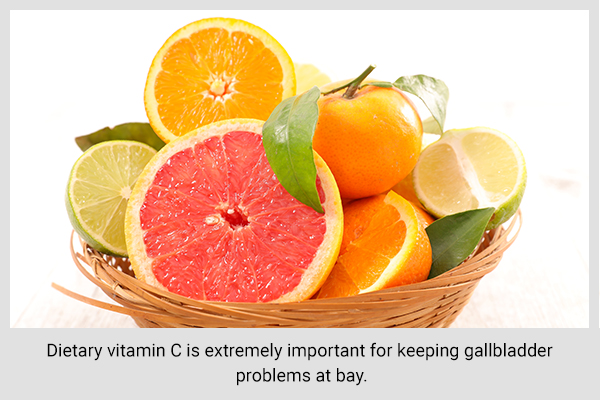
Dietary vitamin C is extremely important for keeping gallbladder problems at bay. This vitamin is involved in the modulation of cholesterol in the body as it promotes the conversion of cholesterol into bile acids in the liver.
A deficiency of vitamin C can, thereby, be associated with an increased risk of cholesterol gallstone formation.
In fact, clinical surveys have found a positive relationship between low vitamin C levels and increased risk of gallstone formation or other gallbladder diseases. Therefore, dietary supplementation of vitamin C (2 g per day over 2 weeks) is important to prevent the formation of gallstones. If you are not at risk for developing gallstones, you can reduce the dose to 1 mg/day. (5)
6. Include fish oil in your diet
Dietary supplementation with 1.5 g omega-3 fats per day over 6 weeks is known to decrease cholesterol levels in the gallbladder without modifying bile acid composition.
In one study, a similar conclusion was drawn in patients with gallstones who showed improvement after supplementation of dietary fish oil that was rich in n-3 fatty acids (PUFA). (5)
7. Avoid high legume intake
High legume intake has been marked as a risk factor for cholesterol gallstones. This is because legumes such as beans are rich in compounds called saponins, which are plant steroids. They promote biliary cholesterol secretion and crystallization.
Therefore, it is highly recommended to consume a diet that is low in legumes to lower your chances of gallbladder problems, especially if you fall in the at-risk category. (5)
Additional Tips to Lower Your Risk of Gallstones
You can lower your risk of gallstones by: (9)
- Avoiding refined carbohydrates and sugar
- Consuming healthy fats, such as fish oil and olive oil
- Avoiding fried food
- Losing weight gradually, as losing weight too quickly can raise your risk of gallstones
When to See a Doctor
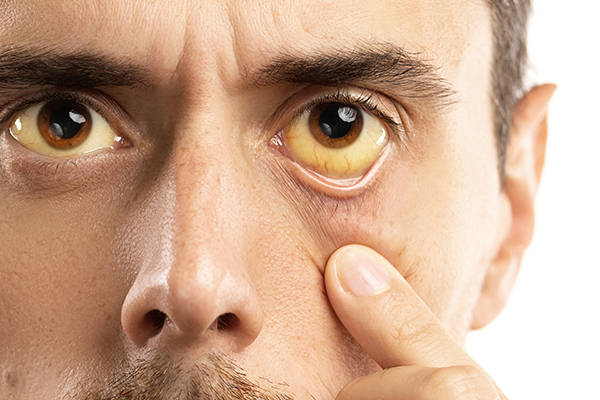
Any sign or symptom that becomes a cause of worry or hinders your daily course of life should be checked by a professional. You should seek medical help if you experience alarming changes such as: (10)
- Very intense abdominal pain that does not go away even after changing posture
- Jaundice that leads to yellowing of the skin and eyes
- Very high fever that continues for a few days
Most-Asked Questions About Common Gallbladder Problems
How would I know if I am suffering from gallbladder issues?
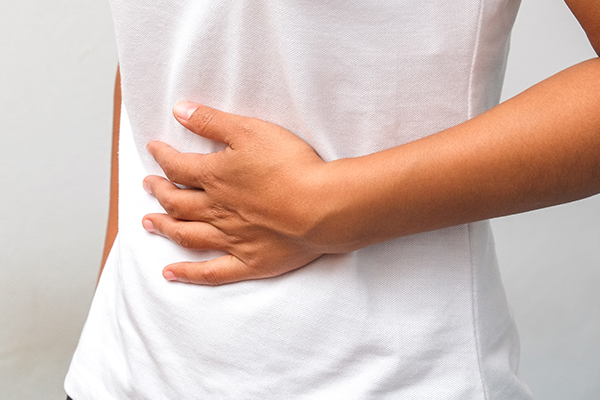
Gallbladder issues can be detected by signs and symptoms that include: (10)
- Pain in the abdominal area
- Pain extending to the back
- Yellowing of the skin
- Nausea
- Emesis
- Fever
- Discoloration of urine
- Chills
How are gallstones formed?
How gallstones are formed is still not clearly known, but various factors can contribute to their development, which include: (11)
- Excessive cholesterol in the bile juice – If there is excessive cholesterol released by your liver, it can accumulate into crystals, which with time will turn into stones.
- Excessive bilirubin in bile juice – Bilirubin is a component of bile juice that is formed after the breakdown of red blood cells. The excess bilirubin is also a contributing factor to the formation of gallstones.
- Incomplete emptying of the gallbladder – If the gallbladder does not get completely emptied and there is still some bile left, gallstones can form.
What are the risk factors for gallbladder problems?
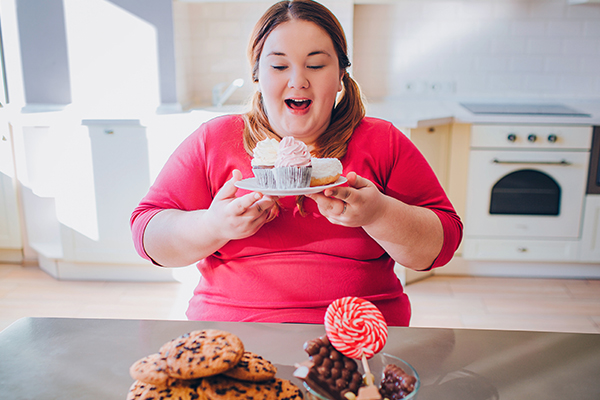
A number of factors can increase your risk of suffering from gallbladder issues and they include: (12)
- Aging
- Obesity
- Sedentary lifestyle
- Pregnancy
- Eating a diet rich in fat and cholesterol
- Inadequate intake of fiber
- Family history of gallbladder problems
- Diabetes
- Blood disorders
- Liver disorders
What would happen if my gallstones are not treated?
Untreated gallstones can lead to several complications, including:
- Cholecystitis – A gallstone that gets stuck in the gallbladder can cause inflammation, which is known as cholecystitis. This causes insufferable pain and is accompanied by fever. (3)
- Bile duct blockage – If gallstones block your bile ducts, it will hinder the flow of bile juice into the small intestine, which can lead to pain and even jaundice. (13)
- Pancreatitis – If the gallstone creates a blockage in the pancreatic duct, not in the gall duct, inflammation of the pancreas (pancreatitis) can occur. This causes severe pain in the abdominal area and should be treated timely. (14)
Does drinking small amounts of alcohol help reduce my risk of gallstones?
Alcohol intake has been associated with cholesterol homeostasis and therefore can be said to have a beneficial effect by lowering the risk of cholesterol gallstones.
According to the Nurses’ Health Study, regular consumption of small amounts of alcohol can have a protective effect on gallstones. Studies also suggest that frequent and moderate alcohol intake reduces the risk of symptomatic gallstones. (5)
Does coffee have an effect on the prevention of gallbladder stones?
Although it is still controversial and requires more research, some studies do suggest that coffee can have a protective effect on gallstone formation. This is because coffee may decrease the synthesis and secretion of cholesterol. (5)
Final Word
Gallbladder problems can be a source of constant discomfort that will hinder your daily activities due to the pain they cause. If the signs and symptoms persist, seek medical help.
Including necessary interventions in your daily life is also important in reducing gallbladder problems, such as avoiding the intake of simple sugars and saturated fat as they favor gallstone formation, as well as consuming fiber and limiting alcohol.
Do not take any gallbladder problem lightly, and do your best to get diagnosed timely to avoid complications.
- Was this article helpful?
- YES, THANKS!NOT REALLY


